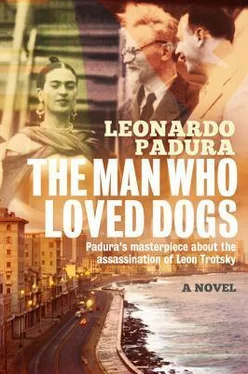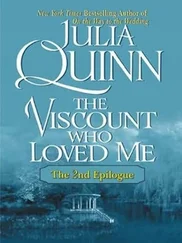But Ramón was always a special prisoner, not only because he enjoyed a certain protection, but also because things worked a different way for him. He wasn’t granted the reduction in his sentence nor was he allowed to marry Roquelia, since if he married her, he could remain in Mexico and Mexico didn’t want him — though they helped Siqueiros get out of the country. Pablo Neruda, the Chilean consul at that time, took him with him. And Diego Rivera, when he wanted to return to the party, began to say publicly that he had housed Trotsky so it would be easier to kill him and everyone laughed along with him. Ramón was sickened by those things. But he was the rejected one: the hypocrites of the world said they were disgusted by him, even as they laughed at the jokes of the cuckold Rivera and the coward Siqueiros (who had even dared to send him a painting as a gift).
Once he was settled in Moscow, his knowledge of various languages served to give some meaning to his time and, at the same time, to earn some extra money with his translations. Meanwhile, his love of cooking, also cultivated in prison, besides filling his hours, allowed him to hand himself over to the nostalgia of his Catalan youth and give flight to his dreams.
For four or five years, Ramón prepared a great dinner to send off Roquelia, who, at the first threat of snow, stepped on the plane taking her to Mexico. On that occasion, in addition to the usual guests he was allowed contact with (Luis and Galina, Conchita Brufau and her Russian husband, a couple of friends from the Casa de España, and Elena Feerchstein, the Soviet Jew with whom he worked on his translations), Leonid Eitingon and his wife Yenia would be there.
That morning, as soon as Ramón began to work in the kitchen, Roquelia, who hated any change in her routine, shut herself up in her room under the pretext of preparing her suitcases. Since Arturo and Jorge were at school, it was young Laura, seated on a stool, and Dax and Ix the wolfhounds, who were the privileged witnesses of the preparation of the meal and of the chef’s commentaries on the ingredients, proportions, and cooking times. In reality, Ramón had begun to prepare that Catalan meal a week before. The difficulty of finding certain ingredients in Moscow limited Ramón’s gastronomic possibilities, and after running (medals at the ready) to various markets and gathering everything that seemed usable, he had opted for an arroz a banda as his artillery appetizer and some pigs’ feet (he lamented not having found the thyme called for by the traditional recipe) for the big offensive. There would be pan con tomate , and crêpes with orange marmalade would bring the agape to a close. Conchita Brufau would bring some wines from Penedès, while Luis brought two bottles of cava for the toasts the Soviets were such fans of.
Those gastronomic journeys to their Catalan origins, which he usually shared with Luis and occasionally with his brother Jorge, a professional chef, hid Ramón Mercader’s warmest and most longed-for hope for a return to Spain. During the months Roquelia spent in Mexico, Ramón and Luis multiplied their meetings in the apartment’s kitchen. Besieged by snow, they tended to use meals to bring back memories and voice hopes. Luis, who was already past forty, dreamt that, with the death of El Caudillo (the bastard had to die someday), Spain’s doors could open again to the thousands of refugees still wandering the world. The youngest Mercader still had hope of obtaining an exit visa from the USSR, so complicated for him despite his origins, and very difficult for Galina and his children because of their Soviet nationality. Ramón, in contrast, knew he would never be allowed to leave Soviet territory and that, in addition, no country in the world, starting with Spain, would deign to receive him. But in the dreams he voiced, Ramón usually told Luis about his plans to open a restaurant on the Empordà coast, specifically on the beach of Sant Feliu de Guíxols. There, in the pleasant months of spring and fall, and in the warm ones of summer, he could earn his living preparing dishes that would improve in taste, consistency, and appearance with every effort. Living in front of the sea, free of fear and the feeling of isolation, and without having to hide his own name, would be the happy culmination of his strange and miserable life.
A few months before, Ramón had made the mistake of discussing that yearning with Santiago Carrillo, the leader of the Spanish Communists. Carrillo had told him, as Ramón expected, that his case was, at the very least, special, and that it wouldn’t be easy to free himself of the chains tying him to Moscow. Didn’t anyone remember that, according to very well-covered-up memories, Carrillo must have been stained by the blood of the regrettable executions of prisoners in Paracuellos?. . For now, like the rest of the refugees, every night before going to sleep Ramón should pray, communistically, for Franco’s death, and then they would see. But the dream, the beach, the heat, kept beating in him, like an unreachable desire that was not possible to give up.
That late October dinner was a success. Even Roquelia was in a good mood (the proximity of her departure had that effect), and everyone praised Ramón’s culinary skills. Leonid Eitingon, in addition to devouring an impressive quantity of pigs’ feet, drank wine, cava, vodka, and even Cuban rum from a bottle brought by Elena Feerchstein, and seemed to be the happiest of men. After taking the lead with the toasts, he was the first one to start singing the old words to Republican anthems. With cigars between their lips, they posed for a photo, and Conchita Brufau told half a dozen jokes that revolved around the supposed resurrection of Lenin or Stalin. But the most successful one was about the best way to hunt a lion:
“It’s very easy: you grab a rabbit and begin to beat him and tell him you’re going to kill his whole family. . Until he confesses that he’s actually a lion dressed as a rabbit.”
“I like seeing all of you like this,” Eitingon said. “Happy and relaxed. . Perhaps you don’t know that these buildings are made of micro-concrete?”
“Micro-concrete?” Elena Feerchstein asked.
“Twenty percent microphones and the rest is concrete. .”
That night, impelled by the alcohol he allowed himself on this occasion, Ramón thought that, despite the confinements, silences, deceptions, and even the fear and the obsession with real and imagined microphones, life was worth living. Eitingon was the exultant proof of that. His cynicism, resistant to blows and years in prison, was protective and exemplary. And wasn’t he as cynical as his mentor? He thought that having believed and fought for the greatest utopia ever conceived of required a necessary dose of sacrifice. He, Ramón Mercader, had been one of those dragged along by the subterranean rivers of that battle, and it wasn’t worth evading responsibility or trying to blame his faults on deception and manipulation; he was one of the rotten fruits cultivated in even the best of harvests, and while it was true that others had opened the doors, he had gladly crossed the threshold of hell, convinced that a life in the shadows was necessary for a world of light.
Past midnight, when the goodbyes were imminent, Luis asked Ramón to accompany him to the kitchen. With his nearly finished cigar at the corner of his mouth, Luis leaned against the small table where the crockery that Ramón (as part of his arrangement with Roquelia) had to wash before going to bed was piled.
“What’s going on? Do you need something?” Ramón served himself a little coffee and lit a cigarette. He felt the alcoholic euphoria of a little earlier morphing into a diffuse but absorbing sadness.
“I didn’t want to ruin your party, but. .”
Читать дальше











